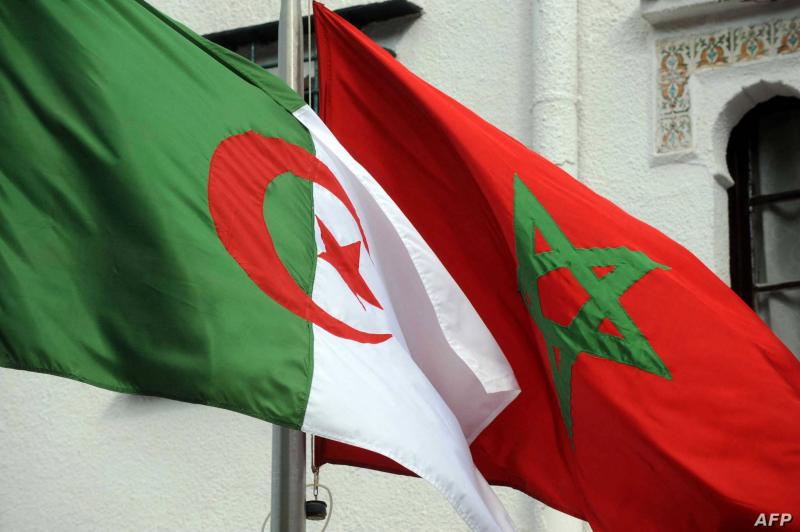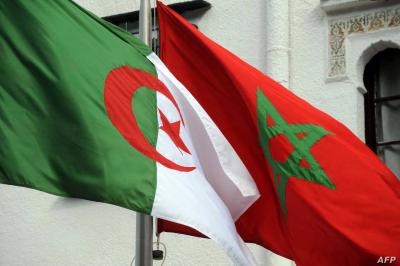On Tuesday, Algeria decided to cut diplomatic relations with Morocco due to "hostile actions" from the kingdom, a move that Rabat expressed regret over, deeming it "absolutely unjustified" and based on "false justifications." This Algerian step came less than a week after Algeria announced a review of its decades-long strained ties with its western neighbor.
During a press conference, Foreign Minister Ramtane Lamamra announced the decision on behalf of the President of the Republic, the Supreme Commander of the Armed Forces, the Minister of National Defense, and the Algerian government. Lamamra stated, "Algeria has decided to cut diplomatic relations with the Kingdom of Morocco starting today (Tuesday)," but emphasized that "cutting diplomatic relations does not mean that Algerian and Moroccan citizens will be harmed. Consulates will carry out their work normally."
He added, "We assure Algerian citizens in Morocco and Moroccans in Algeria that the situation will not affect them. Cutting relations means there are deep disagreements between the two countries, but it does not touch the peoples."
Just hours later, Morocco expressed its "regret over this completely unjustified decision." The Moroccan Foreign Ministry stated in a statement that this decision was "expected given the logic of escalation observed in recent weeks, and also its impact on the Algerian people, who categorically reject the false and absurd justifications upon which it is based."
The brief statement continued, "The Kingdom of Morocco will remain a reliable and loyal partner to the Algerian people and will continue to work, with wisdom and responsibility, to develop sound and constructive Maghreb relations." Moroccan King Mohammed VI had previously called on Algerian President Abdelmadjid Tebboune in a late July speech to "prioritize wisdom" and "work together, at the earliest time he sees fit, to develop the fraternal relations built by our peoples over years of shared struggle," also renewing calls to open the borders that have been closed since 1994.
Days later, Morocco offered assistance to Algeria to extinguish the wildfires that ravaged several forests in the country, resulting in dozens of deaths, but the Moroccan offer went unanswered by the Algerian side. In explaining the reasons behind the decision to sever relations, the Algerian Foreign Minister stated, "It has been historically proven, objectively, that the Kingdom of Morocco has never ceased to engage in unfriendly and hostile actions against our country since Algeria's independence" in 1962, citing events from the 1963 war to the recent espionage operation using the Israeli Pegasus software.
He mentioned that this "documented enmity, by its systematic and premeditated nature, dates back to the open aggressive war in 1963 launched by the Moroccan royal armed forces against the newly independent Algeria. This war saw Morocco using heavy and lethal military weapons, resulting in no less than 850 Algerian martyrs."
Western Sahara was also highlighted as a primary cause of tensions between the neighbors, due to Algeria's support for the Polisario Front, which demands independence for a region that Morocco considers an integral part of its territory and has offered autonomy under its sovereignty. Lamamra blamed the Moroccan leadership for the recurrent crises that have increased in severity, arguing that "this Moroccan behavior leads to conflict and confrontation rather than integration in the Maghreb region."
He accused "Moroccan security and propaganda agencies" of waging a "dirty and extensive media war against Algeria, its people and its leaders, without hesitation in fabricating imaginary scenarios and spreading false information." He particularly pointed to "the dangerous and irresponsible deviation of one of the kingdom's commissioners by addressing what he called the 'right to self-determination for the brave Kabyle people,'" in support of the independence movement of the Kabylie region, which Algeria has classified as a terrorist organization.
In response, Algeria summoned its ambassador in Rabat for consultations on July 16. The Moroccan statement came as a reaction to Algerian Foreign Minister Ramtane Lamamra's raising of the Western Sahara issue at a Non-Aligned Movement meeting.
Despite this, "Algeria demonstrated restraint by publicly demanding clarification from a relevant and competent Moroccan authority. However, the silence from the Moroccan side... clearly reflects political support from the highest Moroccan authority for this act," according to the minister.
Lamamra noted that Morocco had abandoned the rules and principles of "normalizing relations between the two countries," asserting that "the Kingdom of Morocco has made its national territory a rear base and spearhead for planning, organizing, and supporting a series of serious and systematic assaults against Algeria."
He clarified that "the latest of these hostile acts involved the unfounded accusations and implicit threats made by the Israeli Foreign Minister during his official visit to Morocco, in the presence of his Moroccan counterpart, who clearly was the main instigator of such unjustified statements." However, the Moroccan Foreign Minister was not present during the press conference where his Israeli counterpart spoke in Casablanca on August 12.
Lamamra was referring to Israeli Foreign Minister Yair Lapid's statement regarding Israel's concerns about the rapprochement between Iran and Algeria, and its rejection of Israel's acceptance into the African Union as an observer.
Algeria decided on Wednesday to "reassess" its relations with Morocco, which it accused of being involved in the massive fires that swept through northern Algeria, a matter that Lamamra reiterated. Additionally, the Algerian Security Council, chaired by President Abdelmadjid Tebboune, decided to "increase security monitoring on the western borders."
Lamamra left the door open for the renewal of relations, stating, "We hope that minds and hearts will awaken and that things will return to what they should be between fraternal nations."




